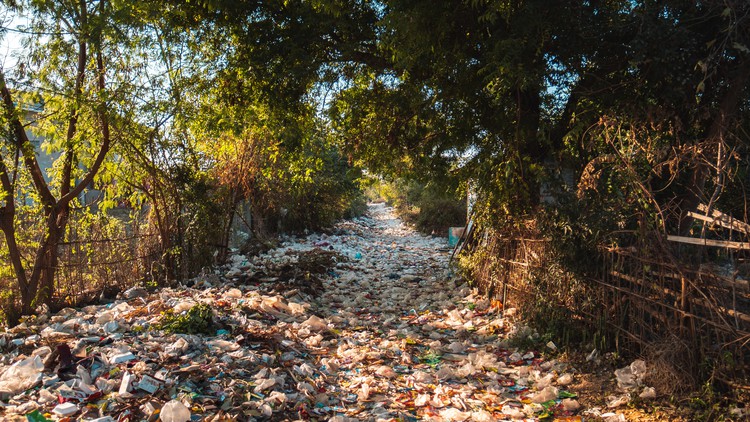
A detailed training on how to setup rural waste management in Myanmar
What you will learn
စည်ပင်သာယာအမှိုက်သိမ်းဝန်ဆောင်မှု မရောက်ရှိနိုင်သောဒေသတွင် အမှိုက်စီမံခန့်ခွဲမှုတစ်ခုထူထောင်ရန် နည်းစနစ်များ
အနာဂတ်တွင်လည်း ရေရည်တည်တံ့သော အမှိုက်ကော်မတီတစ်ခု ဖွဲ့စည်းရန်နည်းလမ်းများ
ရပ်ရွာနှင့် ကျောင်းများတွင် ထိရောက်စွာ အသိပညာမြှင့်တင်ရန် IEC – Information, Education & Communication အထောက်အကူပြုပစ္စည်းများ ပြုလုပ်နည်း
ရပ်ရွာ လူမှုအဖွဲ့အစည်းနှင့် ကိုက်ညီသော အမှိုက်စီမံခန့်ခွဲမှုကို အကောင်အထည်ဖော်နိုင်သွားပါမည်
Description
[English Below]
ကျွန်ုပ်တို့ မြန်မာနိုင်ငံရှိ ကျေးလက်ဒေသများတွင် အမှိုက်ကိစ္စရပ်နှင့် ပတ်သက်လာလျှင် သဘာဝတရားက သူ့ဘာသာစီမံသွားလိမ့်မည်ဆိုသော ယုံကြည်မှုမျိုးလွှမ်းမိုးလျက်ရှိပြီး ၎င်းအယူအဆကြောင့် နိုင်ငံတွင်းသာမက ဒေသတွင်းရှိ ကျေးလက်ဒေသများ၏ အမှိုက်စီမံခန့်ခွဲမှုစနစ်များကို စနစ်တကျရေးဆွဲရန် လစ်လျူရှုမိတတ်ကြပါသည်။ ဤကဲ့သို့ စည်ပင်သာယာအဖွဲ့စည်းများ၏ အမှိုက်သိမ်းဝန်ဆောင်မှုများလစ်ဟင်းမှုကြောင့် ကျေးလက်ဒေသများရှိ လူမှုအဖွဲ့အစည်းများတွင် သူတို့၏အမှိုက်များကို မီးရှို့ဖျက်စီးခြင်း၊ မြစ်ချောင်းစသော ရေလမ်းကြောင်းထဲသို့စွန့်ပစ်ခြင်း သို့မဟုတ် အမှိုက်ပြဿနာကို လုံးဝလျစ်လျူရှုထားလိုက်ခြင်းမှတစ်ပါး အခြားရွေးချယ်စရာမရှိသော အခြေအနေနှင့် ကြုံတွေ့နေရပါသည်။ ဤသင်တန်းတွင် သင်သည် ရပ်ကွက်ကျေးရွာနေလူအစုအဖွဲ့များမှ ဦးဆောင်သော လူမှုအဖွဲ့အစည်းအတွင်း စွန့်ပစ်အမှိုက်စီမံခန့်ခွဲမှုတစ်ရပ် ထူထောင်ခြင်းနှင့် ပတ်သက်ပြီး လေ့လာသင်ယူနိုင်မည် ဖြစ်ပါသည်။ သင်တန်းတွင် ပါဝင်သော ဗီဒီယိုများ၊ အကြံပေးချက်များပါဝင်သော သင်တန်းအထောက်အကူပစ္စည်းများနှင့် ယုံကြည်လေ့လာနိုင်သော အရင်းအမြစ်များ၏ links များမှတစ်ဆင့် –
(၁) မြန်မာနိုင်ငံ၏ အမှိုက်စီမံခန့်ခွဲမှုစနစ်၏ အကျိုးဆက်များ
(၂) အော်ဂဲနစ်အမှိုက်များကို မြေဆွေးပြုလုပ်ခြင်းဖြင့် အမှိုက်မီးရှို့ခြင်းကို လျှော့ချခြင်း
(၃) စည်းကမ်းမဲ့အမှိုက်စွန့်ပစ်ခြင်းနှင့် ပတ်သက်ပြီးအသိပညာပေးရန် အမှိုက်ပုံများပြုလုပ်ထားရှိခြင်း
(၄) မတူညီသော အမှိုက်လိုက်လံသိမ်းဆည်းခြင်းစနစ်များကို ထူထောင်ခြင်း
(၅) လူမှုအဖွဲ့အစည်းနှင့် ရပ်ကွက်ကျေးရွာအတွင်းရှိ ကျောင်းများကို အမူအကျင့်ပြောင်းလဲခြင်းဆိုင်ရာ အသိပညာမြှင့်တင်ရာတွင် အသုံးပြုနိုင်သော ထိရောက်သည့် IEC ပစ္စည်းများအကြောင်း
(၆) အမှိုက်စီမံခန့်ခွဲမှုတွင် နောက်ဆုံးအမှိုက်စွန့်ပစ်သည့် နည်းစနစ်အကြောင်း စသည့်အကြောင်းအရာများကို လေ့လာရမည်ဖြစ်ပါသည်။
ဤမြန်မာနိုင်ငံ ကျေးလက်ဒေသ အမှိက်စီမံခန့်ခွဲရေး သင်ခန်းစာကို ဥရောပသမ္မဂ၏ SWITCH-Asia အစီအစဉ် တစ်ခုဖြစ်သော Prevent Plastics စီမံကိန်းက ဘဏ္ဍာရေးအရပံ့ပိုး ထောက်ပံ့ပေးထားပြီး ၎င်း၏ မိတ်ဖက်အဖွဲအစည်းဖြစ်သော Thant Myanmar မှ သင်ခန်းစာများကို အသေးစိတ်ပြင်ဆင် တင်ဆက်ထားပါသည်။ Prevent Plastics သည် မြန်မာနိုင်ငံတွင် ရေရှည်အကျိုးပြုထုတ်လုပ်မှုနှင့် စားသုံးမှုပုံစံများကို နားလည်ပေါ်ပေါက်လာစေရေးနှင့် စနစ်ကျသော အမှိုက်စီမံခန့်ခွဲမှုများ ကျင့်သုံးလာစေရန် ဥရောပသမ္မဂမှ ဘဏ္ဍာရေးထောက်ပံ့ပေးထားသော အဖွဲ့အစည်းဖြစ်ပါသည်။
The belief that nature takes care of waste in rural areas still dominates legislation and has resulted in a neglect of rural areas in national and regional waste management strategies. Due to the lack of services from Municipal, the communities in rural areas have no other options than to burn their waste, dispose of it in waterways, or ignore the problems. In this course, you will learn how to set up the community solid waste management led by the local groups. Through videos, toolkits with tips, and links to trusted resources, you will learn more about –
(1) Impacts of waste management in Myanmar
(2) Treatment of organic waste by composting for reduction of waste burning
(3) Bins setting up for awareness on littering
(4) Setting up the different collection systems
(5) Effective IEC materials for awareness-raising to the community and local schools on behaviour changes
(6) Final disposal methods for waste management.
Rural Solid Waste Management in Myanmar Course is Funded by the EU SWITCH Asia project; Prevent Plastics Myanmar and created by Thant Myanmar, this 2 hours long course will provide you with detailed training on setting up a rural waste management system in Myanmar. Prevent Plastics is an EU funded project with the overall objective to promote sustainable production and consumption patterns in Myanmar through raised awareness and best practices in waste management
Content